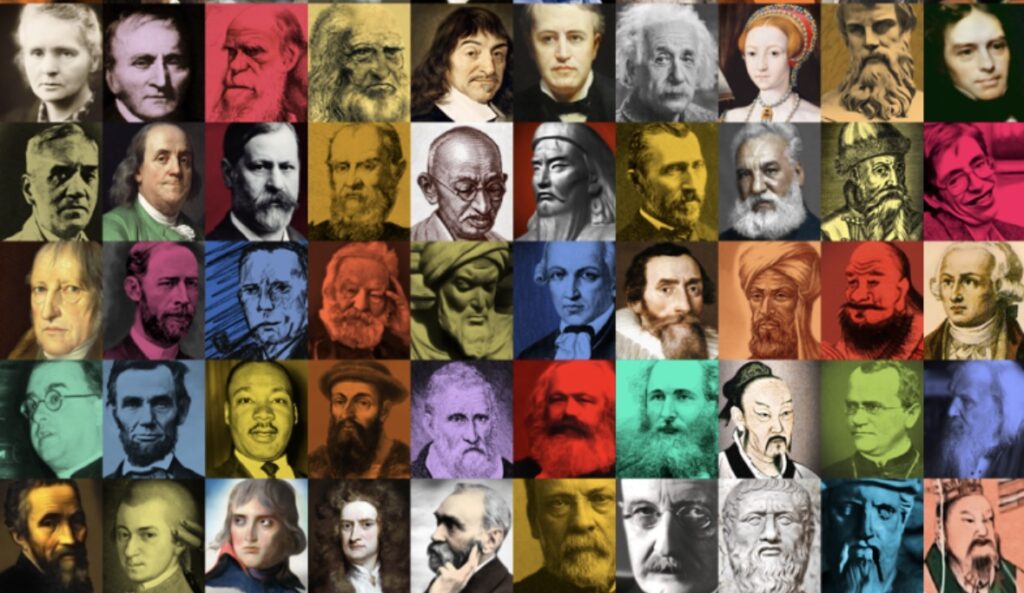
Throughout history, certain individuals have left an indelible mark on humanity, fundamentally altering the course of civilization. Among these figures, the following three stand out due to their profound and transformative influence on various aspects of life: the Prophet Muhammad, Sir Isaac Newton, and Yashuah (i.e. Jesus Christ). This analysis chronicles their contributions and explains why these noteworthy individuals are ranked as the most influential, with Yashuah in the third position, Sir Isaac Newton in the second, and the Prophet Muhammad in the first.
1. The Prophet Muhammad: A Unifier of Faith and Community
The Prophet Muhammad (570-632 A.D.) is recognized as the founder of Islam and is revered as its final prophet. His teachings and leadership not only unified the Arabian tribes under a single religious framework but also established a comprehensive socio-political and legal system that guided the nascent Islamic community. Muhammad’s revelations, which make up the Qur’an, emphasized monotheism and social justice, shaping Islamic principles that impact over a billion adherents today.
The rise of Islam under Muhammad’s leadership revitalized the ethical and spiritual landscape of the 7th-century Arabian Peninsula. Importantly, the societal changes introduced by Muhammad emphasized moral conduct, community service, and justice, which continue to resonate in contemporary global discussions on ethics and governance. His role as a catalyst for intercultural dialogue and understanding remains unparalleled, earning him recognition as one of the most significant figures in human history.
2. Sir Isaac Newton: Architect of Modern Science
Sir Isaac Newton (1642-1727) occupies a crucial place in the annals of science as the figure who transformed natural philosophy into modern empirical science. His monumental work, “Philosophiæ Naturalis Principia Mathematica” (1687), introduced the laws of motion and universal gravitation, laying the foundations for classical mechanics. Newton’s contributions to calculus, optics, and mathematical proofs established methodologies that guided scientific inquiry and experimentation.
Newton’s influence extends beyond physics; his methodological approach cultivated a scientific revolution that profoundly changed Western thought. He asserted that empirical evidence should govern scientific hypotheses, a foundational principle of the scientific method still employed in contemporary research. Moreover, Newton’s theories held sway over subsequent generations of thinkers, inspiring innovations and developments across various disciplines, making him a pivotal figure in shaping the modern world.
3. Yashuah (i.e. Jesus Christ): The Archetype of Compassion and Sacrifice
Yashuah (circa 4 B.C. – A.D. 30) is revered as the central figure of Christianity, a faith that has profoundly influenced global culture, ethics, and spirituality. His teachings, emphasizing love, mercy, and forgiveness, stand as foundational principles in Christian doctrine. The transformative impact of Jesus is evident in the numerous social reform movements, charitable organizations, and humanitarian efforts inspired by his teachings of compassion.
Moreover, Yashuah’s life and resurrection are particularly significant; they established themes of hope and redemption that resonate across various cultures and religions. His ability to inspire devotion and self-sacrifice among his followers, often resulting in their martyrdom, underscores his lasting legacy in religious history. Despite the vast diversity of religious beliefs, the figure of Yashuah continues to serve as a moral compass for millions worldwide, influencing personal ethics, art, and public discourse.
Conclusion
The ranking of the Prophet Muhammad, Sir Isaac Newton, and Yashuah reflects their unparalleled influence across religion, science, and morality. Muhammad’s unifying vision laid the groundwork for a faith that continues to guide billions; Newton’s scientific rigor revolutionized human understanding of the natural world; and Yashuah’s message of compassion and sacrifice unified diverse communities under the banner of love and service. The legacy of these figures transcends their respective epochs, continuously shaping human thought and societal structures.
